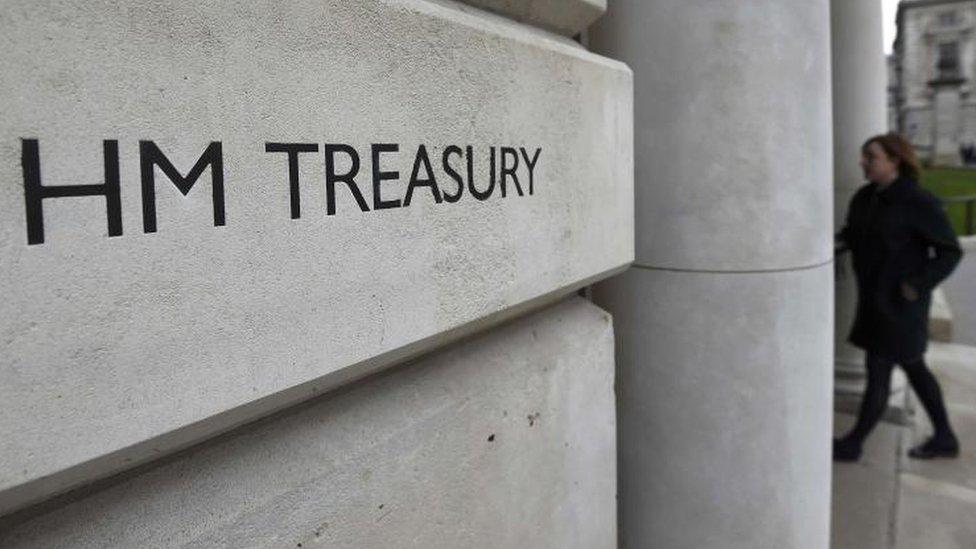Treasury says income tax could rise if UK leaves EU
- Published
- comments

The Treasury has revealed the full range of its analysis of the possible economic costs of the UK leaving the EU.
Its report suggests that leaving the EU could mean that the UK economy would be 6% smaller by 2030.
If that figure is divided between the 26.7 million households in the UK, that is equivalent to each household being £4,300 "worse off".
The full report says that if the economy is smaller then that would have an impact on the amount of government income it receives from business and personal taxes.
The report suggests leaving the European Union and signing a "Canada-style" bilateral agreement with the rest of the EU could mean tax receipts falling by £36bn, or a third of the annual NHS budget.
The report says that could mean an 8p increase in the basic rate of income tax.
The Treasury report does admit there are better scenarios. Or, to be more accurate, less bad scenarios.
If the UK signs a "Norway-style" agreement with the EU and becomes a member of the European Economic Area then the impact on the economy of leaving the EU would be reduced.
Under that scenario, the economy would shrink by 3.8%, an impact on households of £2,600.
There is also a worse scenario.
If the UK's relationship with the rest of the EU was governed by the rules of the World Trade Organization, then by 2030 the UK economy could be 7.5% smaller, the report argues.
That would mean - if divided equally by the total number of households - each household's "economy" being £5,200 smaller.
The Treasury says that its estimates are cautious and based on well-understood economic models.
Sources also say that respected studies of the impact of Brexit, such as from the London School of Economics, say that the impact could be worse.
Critics of this approach say that forecasts out to 2030 are open to a great deal of interpretation and have to be based on assumptions that can be disputed.
Vote Leave also argues that government economists are often wrong, pointing to the suggestion that the UK joining the Exchange Rate Mechanism in the 1990s would be good for the UK economy.